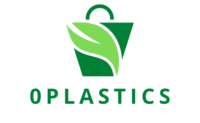In a world increasingly concerned about the environmental and social impact of our food choices, the journey of our ingredients from farm to shelf is becoming more and more scrutinized. Consumers are demanding transparency and accountability, and food producers are rising to the challenge by adopting sustainable sourcing practices.
What is Sustainable Sourcing?
Sustainable sourcing is the practice of procuring ingredients in a way that minimizes negative environmental and social impacts. This includes factors like:
- Environmental: Conserving water and soil, reducing greenhouse gas emissions, protecting biodiversity, and using renewable resources.
- Social: Ensuring fair wages and working conditions for farmers and laborers, supporting local communities, and promoting ethical trade practices.
- Economic: Building long-term relationships with farmers, supporting local economies, and promoting economic stability in agricultural communities.
Why is Sustainable Sourcing Important?
The current food system faces a number of challenges, including climate change, soil degradation, water scarcity, and unfair labor practices. Sustainable sourcing is essential for addressing these challenges and ensuring a more secure and equitable food supply for the future.
Examples of Sustainable Sourcing Practices
There are a number of ways that food producers can source ingredients sustainably. Some examples include:
- Partnering with certified organic or Fair Trade farms: These farms adhere to strict standards for environmental and social responsibility.
- Supporting local agriculture: This reduces transportation emissions and supports local economies.
- Using regenerative agriculture practices: These practices improve soil health, sequester carbon, and increase biodiversity.
- Reducing food waste: This conserves resources and reduces the environmental impact of food production.
The Benefits of Sustainable Sourcing
Sustainable sourcing benefits everyone in the food system, from farmers and consumers to the environment. Some of the benefits include:
- Improved environmental quality: Sustainable practices help to protect soil, water, and air quality.
- Fairer prices for farmers: Fair trade practices ensure that farmers receive a fair share of the profits from their crops.
- Higher quality food: Sustainable agriculture often leads to healthier and more flavorful food.
- Increased food security: By building resilient food systems, we can better withstand the challenges of climate change and other disruptions.
Challenges and Opportunities
While there are many benefits to sustainable sourcing, there are also challenges. These include the higher costs associated with sustainable practices, the lack of awareness among consumers, and the complexity of building and maintaining sustainable supply chains.
However, there are also a number of opportunities for growth in the sustainable sourcing market. Consumers are increasingly demanding sustainable products, and there is growing investment in sustainable agriculture and food production.
The Future of Sustainable Sourcing
The future of food is sustainable. As consumers continue to demand transparency and accountability, food producers will need to adopt sustainable sourcing practices to remain competitive. By working together, farmers, consumers, and businesses can create a more sustainable food system that benefits everyone.
Here are some additional tips for choosing sustainably sourced ingredients:
- Look for certifications such as USDA Organic, Fair Trade Certified, and Rainforest Alliance Certified.
- Ask your local grocery store or farmer’s market about their sourcing practices.
- Support local farms and businesses that are committed to sustainability.
- Cook at home more often using fresh, seasonal ingredients.
By making informed choices about the food we eat, we can all help to create a more sustainable and equitable food system for the future.
Additional Resources:
- The Sustainable Food Institute: https://sustainablefoodinstitute.com/home-page
- The Rodale Institute: https://rodaleinstitute.org/why-organic/organic-basics/regenerative-organic-agriculture/
- The World Wildlife Fund: https://www.worldwildlife.org/
Thank you for reading!
